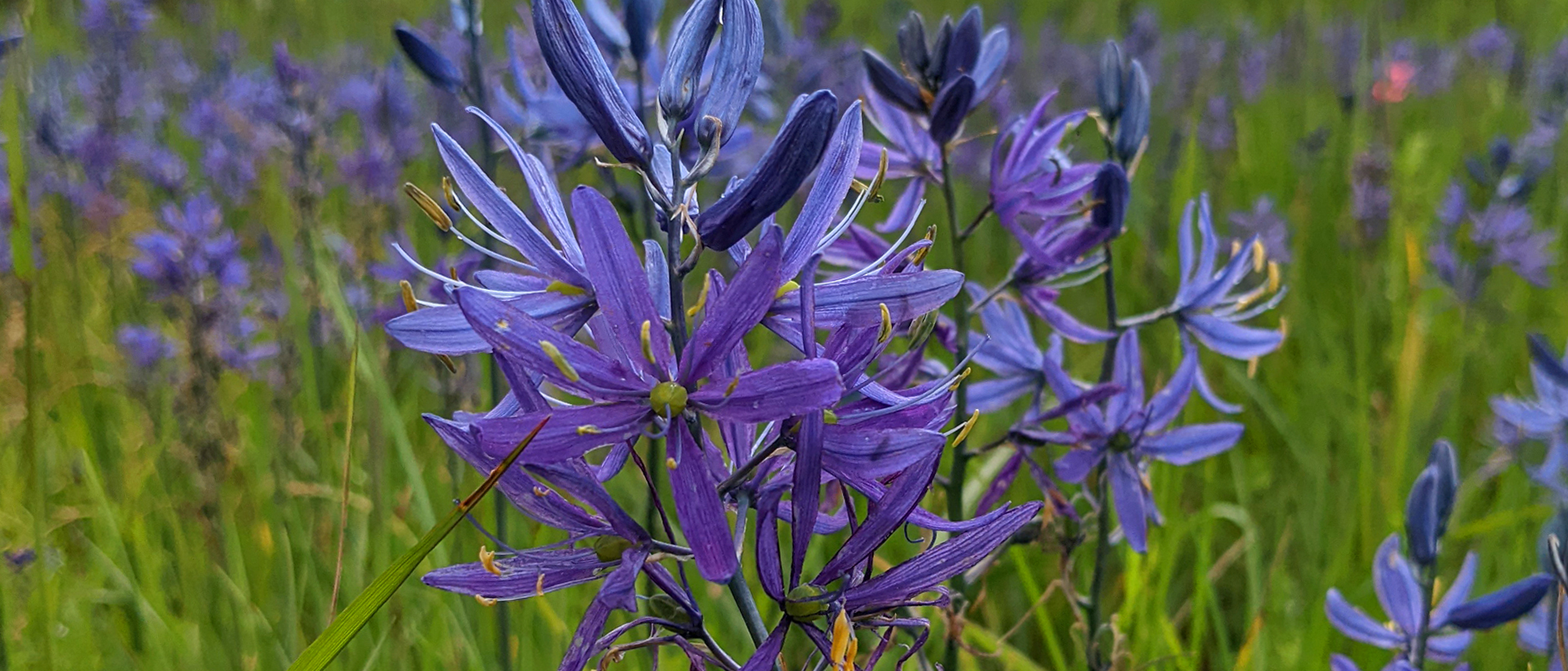The CLA websites are currently under construction and may not reflect the most current information until the Fall Term.

Oregon State University’s Indigenous Studies minor, offered both in person and through Ecampus, is grounded in Indigenous knowledges, methods, and histories. The minor consists of 12 credits of required core courses and a minimum of 16 credits of elective courses. Course details can be found through the minor requirements link.
The Minor:
Waldo Hall 282
2250 SW Jefferson Way
Corvallis, OR 97331
Office: 541-737-7831
Email: Luhui.Whitebear@oregonstate.edu
Heather Arbuckle
Email: Heather.Arbuckle@oregonstate.edu
Indigenous Studies Core Faculty
Patricia Fifita, Assistant Professor, Ethnic Studies/Indigenous Studies
Blake Hausman, Instructor, Ethnic Studies/Indigenous Studies
David Lewis, Assistant Professor, Anthropology/Indigenous Studies
Renea Perry, Instructor, Ethnic Studies/Indigenous Studies
Luhui Whitebear, Assistant Professor, Ethnic Studies, WGSS/Indigenous Studies
Ryan Younker, Instructor, Ethnic Studies/Indigenous Studies
Ecampus Faculty
Patricia Fifita, Assistant Professor, Ethnic Studies/Indigenous Studies
Blake Hausman, Instructor, Ethnic Studies, English/Indigenous Studies
David Lewis, Assistant Professor, Anthropology/Indigenous Studies
Renea Perry, Instructor, Ethnic Studies/Indigenous Studies
Indigenous Studies Admin
Heather Arbuckle, Head Academic Advisor
Susan Bernardin, School of Language, Culture, & Society Director
The Indigenous Studies Minor was officially approved in Spring 2022. The program was developed in 2020 and 2021by a team of faculty that included (in alpha order) Natchee Barnd, Susan Bernardin, Spirit Brooks, Allison Davis-White Eyes, Qwo-Li Driskill, Patricia Fifita, Blake Hausman, David Lewis, Ron Mize, Luhui Whitebear. The minor was intentionally housed in Ethnic Studies to ensure its interdisciplinary focus on Indigeneity and the interrogations of settler colonialism, in addition to highlighting the importance of Indigenous Studies to Ethnic Studies analyses and activism, and vice versa.
The minor should also be situated in a much longer timeline/groundwork stretching back to the establishment of the Ethnic Studies Department in 1995. Many of the existing courses (or their current iterations) can be traced to a number of previous faculty and staff, including Linc Kessler (English), Kurt Peters (Ethnic Studies), Deanna Paniataaq Kingston (Anthropology), Allison Davis-White Eyes (Student Affairs), Tony Vogt (Philosophy), Kathleen Dean Moore (Philosophy), Gail Woodside (Agriculture), Samantha Chisholm Hatfield (Agriculture), Margaret Mathewson, and Jan-Michael (Looking Wolf) Reibach (Music).
The intent to draw from both local responsibilities and a broad understanding of Indigeneity included an intentional focus on Pacific Islander communities. OSU, and Oregon more generally, has a long history of Pacific Islander diaspora and presence. The inclusion began many years prior with the inclusion of significant Pacific Islander materials in the introductory level “Native American Studies” course, and was further fueled by student organizing in spring 2016 toward the creation of a stand-along course. Led by Marquina Hofschneider (Chamorro), students asked the department to create a course. The result was ES 260 Introduction to Pacific Islands Studies, a class designed by adjunct faculty Patricia Fifita (Tongan) and offered in spring 2017. Dr. Fifita was later hired as a tenure-track faculty for Ethnic Studies in 2021, as part of an Indigenous Studies cluster hire that also brought in David Lewis (Santiam, Chinook, Takelma- Grand Ronde) as a split faculty line in both Ethnic Studies and Anthropology, and Luhui Whitebear (Coastal Band Chumash) as a School of Language Culture and Society hire (with split duties in Women, Gender, and Sexuality Studies; Ethnic Studies; and Queer Studies).
In spring 2022, graduating senior Chanti Manon (Ethnic Studies/Art) became the first student at OSU to graduate with the Indigenous Studies minor, having already completed the degree requirements by the time the minor was made official.
Oregon State University recognizes the impact that its land grant history had on Indigenous communities in Oregon. Through the Morrill Act of 1862, which established land grant universities in the United States, the federal government seized nearly 11 million acres of land from 250 sovereign tribal nations, with little or no compensation.
In 1868, the state legislature designated Corvallis College as Oregon’s land grant institution. Soon after, Oregon received 90,000 acres of federal lands — taken from the Klamath, Coos, Lower Umpqua, Siuslaw and Coquille people — to be sold to create an endowment supporting the growth of the new college, which would become Oregon State University.
Oregon State University in Corvallis is located within the traditional homelands of the Marys River or Ampinefu Band of Kalapuya. Following the Willamette Valley Treaty of 1855, Kalapuya people were forcibly removed to reservations in Western Oregon. Today, living descendants of these people are part of the Confederated Tribes of Grand Ronde Community of Oregon and the Confederated Tribes of the Siletz Indians. Indigenous people are valued, contributing members of the Oregon State community and represent multiple sovereign tribes among students, faculty, staff and alumni.
Oregon State University accepts its responsibility for understanding the continuing impact of that history on these communities. Oregon State is committed — in the spirit of self-reflection, learning, reconciliation and partnership — to ensure that this institution of higher learning will be of enduring benefit, not only to the state of Oregon, but also to the people on whose ancestral lands it is now located.
The Indigenous Studies Minor is not an authority on providing guidance on local Tribal histories and representation. We support Tribal sovereignty and self-determination on how this information is represented and encourage you to visit the official Tribal webpages for information on how they would like their histories told. You can find the webpages of the nine federally recognized Tribes of Oregon here: https://www.oregon.gov/odhs/tribal-affairs/Pages/default.aspx. As a land grant institution, OSU acknowledges its responsibilities to the Tribal nations within the state, and beyond. The Indigenous Studies Minor is an extension of OSU and also understands these responsibilities. You can learn more about that commitment here: https://oregonstate.edu/land-acknowledgment. If you are looking for guidance on developing land acknowledgements, please refer to the OSU President’s Commission on Indigenous Affairs guidance here: https://beav.es/5tc.